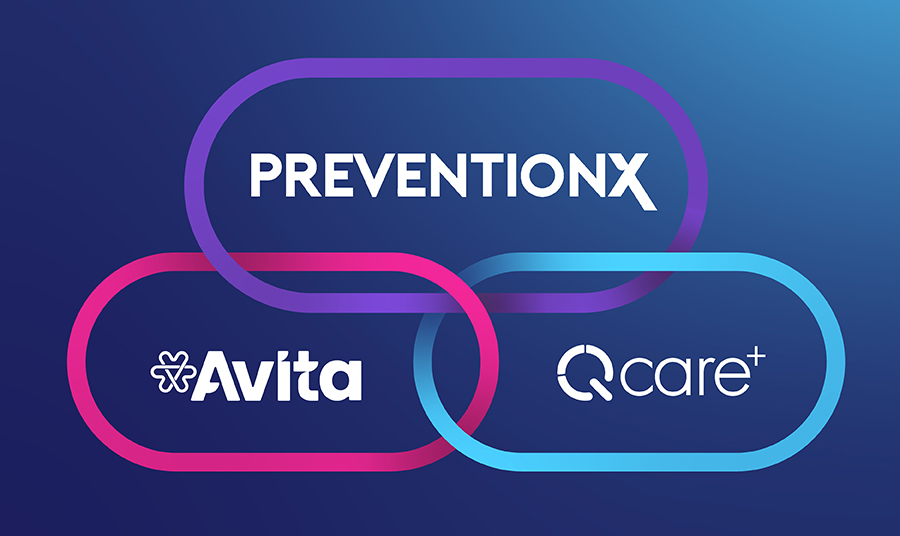It all began 40 years ago with a simple food pantry and soup kitchen.
Established in 1982 as an interfaith volunteer emergency organization, Project Hospitality was formed to respond to the needs of the hungry and homeless in Staten Island, New York. Since then, the non-profit has continually met growing community demands, and now includes outreach and education programs, a healthy families initiative, senior health and wellness services, youth programs, disaster recovery services, women’s emergency services, domestic violence programs, and more.
About Project Hospitality
Founded: 1982
Incorporated in 1984
Location: Staten Island, NY
Industry: Non-profit
The agency offers a comprehensive continuum of care that provides the essentials of food, clothing, and shelter enhanced by health and mental health services, substance abuse treatment, HIV prevention and care, domestic violence education and services, immigrant services, vocational training, transitional and permanent housing, legal and financial services, and services for at-risk youth.
Mission:
To reach out to community members who are hungry, homeless, or otherwise in need in order to work with them to achieve their self-sufficiency–thereby enhancing the quality of life for our community.
Avita partner since: 2020
Number served: 28,000 annually
Staff: 300
Plus a corps of more than 600 volunteers
“We’re the largest provider of social services on Staten Island,” says Rasheed Ford, the agency’s Area Director of Housing & Support Services. “And as we’ve been depended on more and more to help the community, we’ve rolled out a bevy of programs.”
But in an ever-changing funding environment—not to mention a challenging road ahead for community healthcare organizations relying upon the 340B program—the journey toward mission expansion has not always been easy. Read on to learn how Project Hospitality has leveraged a holistic care model, funding diversification, and strategic partnerships to sustainably achieve its vision to compassionately aid some of the most underserved and vulnerable populations in the United States.
An admirable vision dependent on the bottom line
It’s a dilemma every non-profit organization must face: How to meet exponentially increasing community needs with continually stretched budgets.
“You have instances where you might have a vision in mind, but you have to ask yourself how you’re going to finance it,” Ford says. “How will it be sustained? What’s the best way to go about it that’s the least costly to the agency and is sustainable over time?”
Take, for example, Hurricane Sandy hitting the East Coast in 2012. The disaster killed 24 Staten Islanders and, in one night, left thousands more homeless. “FEMA and DHS came to Project Hospitality and said ‘Please, we need you to spearhead this evacuation initiative,’” Ford says. The non-profit stepped up, offering food, housing, and hope to storm victims in a part of New York City that is often called the “forgotten borough.”
You have instances where you might have a vision in mind, but you have to ask yourself how you're going to finance it. How will it be sustained? What's the best way to go about it that's the least costly to the agency and is sustainable over time?
- Rasheed Ford
Area director of housing & Support Services
Project Hospitality
“There are times when circumstance cause a city agency to come to us, knowing that we’ve been successful in delivering services in the past,” says Ford, who explains that this is just one way new initiatives come to fruition. “Contracts are birthed out of need, when we see a gap in our community, and when we see a Request for Applications (RFA) go out.”
The common denominator is that the Project Hospitality team must critically consider the impact vs. cost of each and every program. “We’re always looking at where we can get funding from,” Ford explains. “Is it free? What strings are attached to it? Is it something we can do? Is it a service we can provide over time? Does it make sense for Staten Island?”
It doesn’t always. “We look at our demographics to see if the need is really there,” Ford says. “We’re not just trying to grab at something. We’ve given up contracts we felt weren’t feasible or didn’t make the most sense for us. Maybe there’s another organization on the island that’s already providing that service really well. What’s the point in competing?”
Balancing 340B challenges with holistic care
As Project Hospitality has grown, it’s also diversified its services beyond food and shelter needs, extending its “web of care” to a community health center. “Whether it’s HIV support services, housing services, or Medicaid homes, there are certain groupings that are really required if we’re going to offer holistic care,” Ford says. “We have clients who are dually enrolled in our recovery program and the wellness center. They’re also a housing client, and they’re going to our food pantry.”
And while supplementing support for its healthcare clinic through 340B program funding can literally be a lifesaver, it’s also a confusing and time-intensive administrative process for covered entities. “The 340B program is a mammoth in and of itself,” says Ford. “The reporting requirements, allowable expenses—there are times when the real needs can’t always be met or have to be met with agency dollars because the cost was not allowable.”
You don't want to launch something and then get the rug pulled out from under you due tot he ebb and the flow of government policies you don't always have a voice in.
- Rasheed Ford
Area director of housing & Support Services
Project Hospitality
Ford’s advice to non-profits—whatever their size—is diversify. “It’s a matter of having different revenue streams,” Ford says. “Be smart about the type of contracts that you sign; make sure it’s for something useful and sustainable, that there’s a way for it to have a long life. Most of these contracts are reimbursable, meaning [the funder is] only going to give you the money back if you provide services they’ve said were allowable.”
In other words, make sure that you have a funding back-up plan. “Maybe you’re not entirely ready,” says Ford. “You don’t want to launch something and then get the rug pulled out from under you due to the ebb and the flow of government policies you don’t always have a voice in.”
Here’s where having a strategic business partner that is also a 340B program expert comes into play. “Anybody looking to venture into this world, get a good, contracted pharmacy,” Ford says. “Because there’s a lot to learn. It’s its own animal, but it’s worth it.”
Enter Avita.
A care partner with 340B expertise
When Project Hospitality became a covered entity in 2020 and started its 340B program, Ford says the team had a lot to learn. “We didn’t have the knowledge base about 340B in-house, so it was very important that we were able to rely on a partner who would educate us,” he says.
Why Avita? “We sat down with different vendors who facilitated and administered 340B pharmacy services, and Avita just came off as the most experienced compared to the others,” Ford says. “The Avita team had the most time, knowledge, and understanding of 340B. Now they’re teaching us, and we’re learning how this goes.”
The Avita team had the most time, knowledge, and understanding of 340B. Now they're teaching us, and we're learning how this goes.
- Rasheed Ford
Area director of housing & Support Services
Project Hospitality
Ford says that while Avita’s team of financial and 340B experts are dedicated to helping Project Hospitality reach its funding and operational goals, the beauty of the relationship is that it’s not just about money. “Our monthly settlement meeting is not just a look at the dollars,” Ford says. “We’re looking at the report and asking Avita, ‘What does this mean?’ Then Avita points out that a certain patient hasn’t filled this prescription in the last few months. The fact that Avita brings this to our attention lets me know we’re on the same page about Project Hospitality’s mission: It’s all about sustainable patient care.”
From a clinical point of view, the biggest difference Ford sees between partnering with Avita and some other retail pharmacies is visibility into the full patient journey. With Avita, “we can see what’s happening,” Ford says. “We can ask what happened to a certain medication, we can negotiate, and we have more control. Whereas with larger retail pharmacy chains, “we don’t know why a patient didn’t get their prescriptions. That pharmacy doesn’t work for us. They don’t answer to us. They don’t even answer the phone.”
The collaborative communication between the Avita and Project Hospitality teams “creates a much better position for us to clinically engage clients from a point of honesty,” Ford says. “We’ve had nothing but good experiences so far with Avita. We like the fact that the staff are educated and informed. They’re patient-centered, they’re quick, and they’re doing what they said they were going to do.”
Cultural competency: Meeting patients "where they're at"
Cultural competency, or the ability of a person to effectively interact, work, and develop meaningful relationships with people of various cultural backgrounds, is hugely important at Project Hospitality, which serves clients from all walks of life. Patients appreciate that the Avita Pharmacy team keeps prescriptions simple, Ford says, with easy-to-understand directions, color coding, and the use of blister packs. “Folks will opt out of a thing very quickly if they get frustrated,” he says. “The simpler you make a process, the more likely you are to get compliance.”
The same goes for the many educational sessions and marketing resources Avita cobrands for Project Hospitality, in both English and Spanish if needed. “Once again, if you do a group educational session, the easier you make the material to digest, the more likely you are to get consumption, and then retention,” For says.
We've had nothing but good experiences so far with Avita. We like the fact that the staff are educated and informed. They're patient-centered, they're quick, and they're doing what they said they were going to do.
- Rasheed Ford
Area director of housing & Support Services
Project Hospitality
Avita’s compassionate communication is also key, Ford says. “To be successful, pharmacy teams must meet patients where they’re at,” he says. “Avita has been so neutral in the delivery of their communications. You can tell there’s no sting, presumption, or judgment attached to any particular issue.”
It’s that type of partnership that bodes well for Project Hospitality’s future. “Staten Island is a world of its own,” Ford says. “We’re one of the five boroughs of New York City, but we’re the most disconnected physically and culturally. Our constant mission and initiative is staying at the forefront and filling any gaps.”




